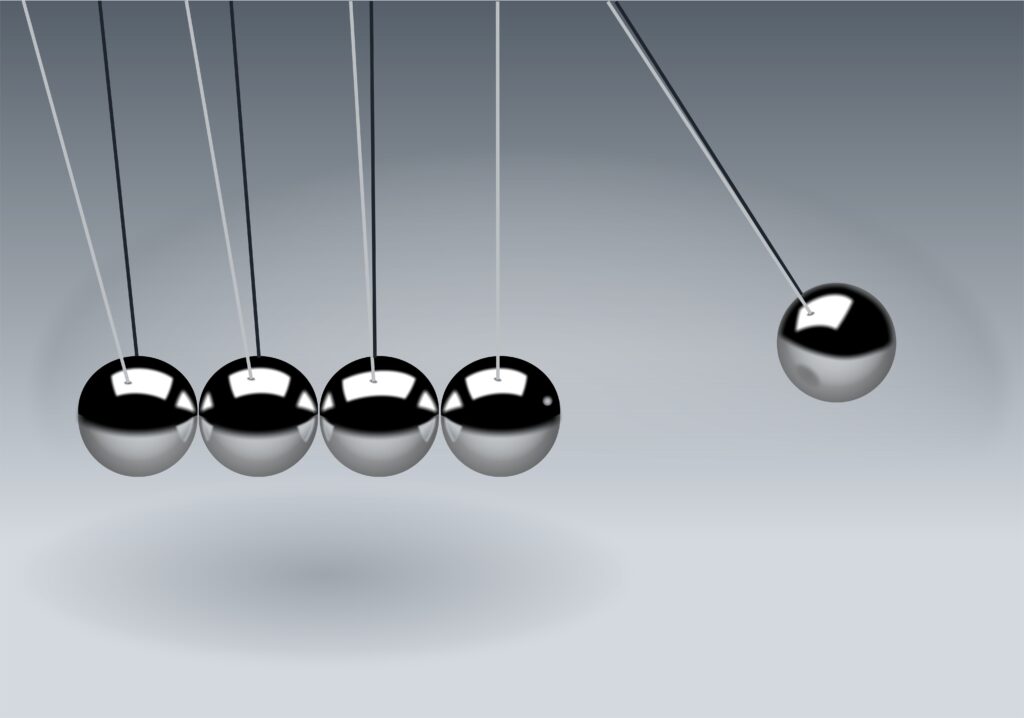
Social Fact

Mimetic Theory in High School

Mimetic System

Hyperobject

Family Scapegoat Syndrome

Scapegoating in American Beauty

Mimetic Martinis: Contagious Desire Explained,
By James Bond
Mimetic Martinis: Contagious Desire Explained, The dramaThe drama of everyday life is that people are constantly seeking other people to imitate while simultaneously unaware that they imitate.
The drama of everyday life is that people are constantly seeking other people to imitate while simultaneously unaware that they imitate.
I plan to order a beer from the bar, but my friend orders a gin martini first. Suddenly, I “realize” that I want a martini, too. (If I’m honest with myself, I didn’t want a martini when I entered the bar. I had my heart set on a cold beer. Why the sudden change? My friend didn’t remind me of some subconscious inner desire that I have for a martini; he gave me the desire. I want one because my friend wanted one first. This is mimetic desire.)
But what if, while we’re bellied up to the bar drinking our gin martinis, my friend tells me about a new position at his company that he wants: Managing Director of something. If he gets it, he’ll receive a $20,000 boost in salary and have a new title. It comes with more vacation time, too.
As I smile and tell him that I hope he gets it, I feel some anxiety. Shouldn’t I be making an extra $20,000, too? Will my friend and I still be able to plan vacations together if he gets twice as much paid time off as I do? And lastly, what the hell? We graduated from the same school and I worked twice as hard as he did in school and after. Am I falling behind? Did I choose the right path in life? Even though I used to tell myself I could never be in his line of work, now I’m second-guessing myself. He seems more eager than I to go to work every day.
My friend has become a model of desire to me. We will never speak of it. But an inner force has been activated in me which, if left unchecked, will cause conflict. I start to make decisions based on what my friend wants. If he’s competing fiercely for status, then it’s impossible for me not to have status anxiety. If he reaches Delta Skymiles Platinum status, then I want to reach it too. Sometimes, I imitate him negatively. If he buys a Tesla, then I could never own a Tesla. I have to differentiate myself from him. I don’t want any more reminders that I’m always one step behind. So I buy a classic Ford Camaro and start to hate-watch Tesla drivers on the road—not acknowledging that my behavior revolves around a model of desire.
In the passage from childhood to adulthood, open imitation usually turns into hidden mimesis. Gone are the days of childhood when we openly imitated and expressed our true desires. In adulthood, there is an underground imitation game going on around us—and within us—all the time.

SOCIAL FACT
By Eric
The drama of everyday life is that people are constantly seeking other people to imitate while simultaneously unaware that they imitate.
I plan to order a beer from the bar, but my friend orders a gin martini first. Suddenly, I “realize” that I want a martini, too. (If I’m honest with myself, I didn’t want a martini when I entered the bar. I had my heart set on a cold beer. Why the sudden change? My friend didn’t remind me of some subconscious inner desire that I have for a martini; he gave me the desire. I want one because my friend wanted one first. This is mimetic desire.)
But what if, while we’re bellied up to the bar drinking our gin martinis, my friend tells me about a new position at his company that he wants: Managing Director of something. If he gets it, he’ll receive a $20,000 boost in salary and have a new title. It comes with more vacation time, too.
As I smile and tell him that I hope he gets it, I feel some anxiety. Shouldn’t I be making an extra $20,000, too? Will my friend and I still be able to plan vacations together if he gets twice as much paid time off as I do? And lastly, what the hell? We graduated from the same school and I worked twice as hard as he did in school and after. Am I falling behind? Did I choose the right path in life? Even though I used to tell myself I could never be in his line of work, now I’m second-guessing myself. He seems more eager than I to go to work every day.
My friend has become a model of desire to me. We will never speak of it. But an inner force has been activated in me which, if left unchecked, will cause conflict. I start to make decisions based on what my friend wants. If he’s competing fiercely for status, then it’s impossible for me not to have status anxiety. If he reaches Delta Skymiles Platinum status, then I want to reach it too. Sometimes, I imitate him negatively. If he buys a Tesla, then I could never own a Tesla. I have to differentiate myself from him. I don’t want any more reminders that I’m always one step behind. So I buy a classic Ford Camaro and start to hate-watch Tesla drivers on the road—not acknowledging that my behavior revolves around a model of desire.
In the passage from childhood to adulthood, open imitation usually turns into hidden mimesis. Gone are the days of childhood when we openly imitated and expressed our true desires. In adulthood, there is an underground imitation game going on around us—and within us—all the time.
